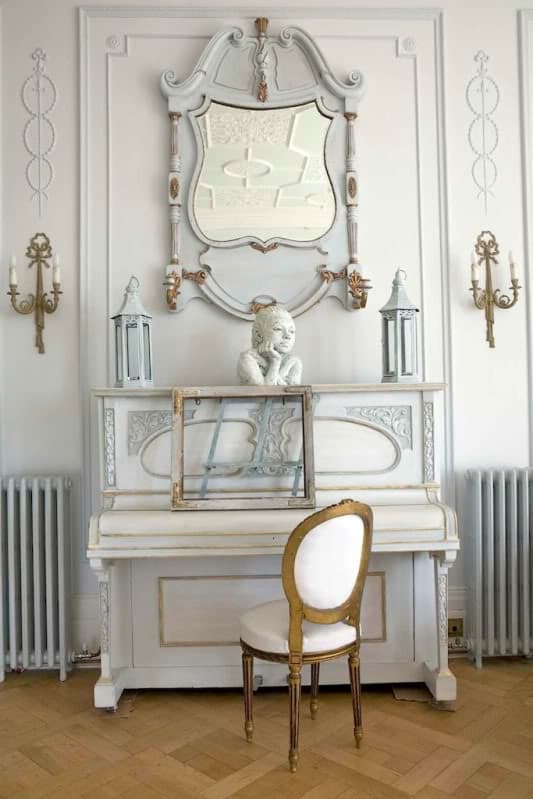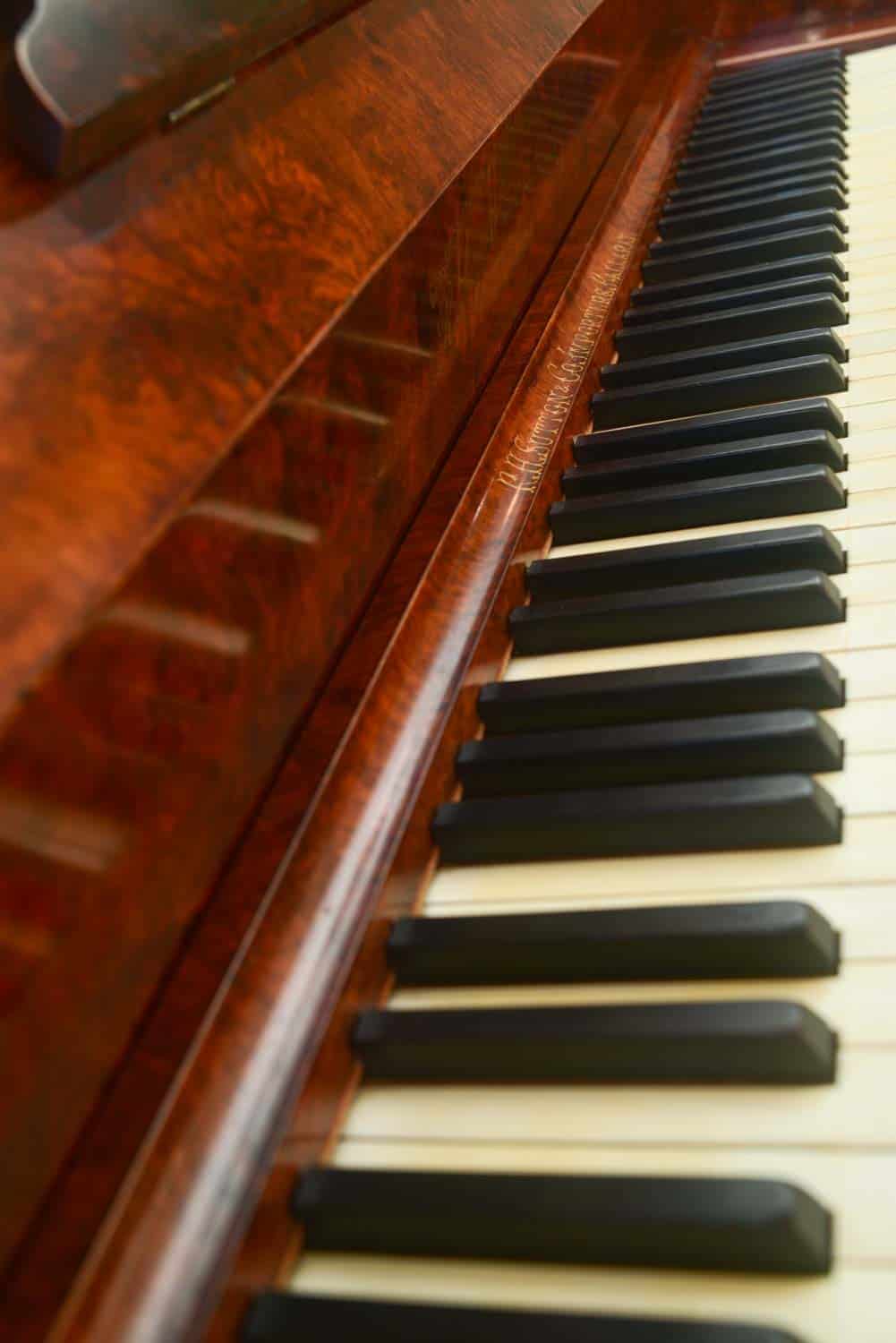FAQ
Most frequent questions and answers
Piano restoration is my speciality, from repairs to bringing out the best of wood veneer, so I can give you a realistic appraisal for any work your piano requires.
Yes I do. Prices for piano removal services depend on the distance to be travelled and the number of stairs at either the receiving or delivery address.
No stairs: from $120
More than three steps/stairs: from $160
Please note: These prices are for the Timaru area. Please discuss for an estimate in the rest of the South Island.
 It’s wise to get professional advice before spending time and money on a piano which may not be able to be repaired or tuned.
Many factors contribute to a piano’s tonal quality, but the three main components are: hammer quality, string quality, and the soundboard.
A piano that has spent years in a damp environment or a hot, dry room often shows loose glue joins and splits in the soundboard, and results in the piano having a poor tone.
Common problems with older pianos are that the hammer felts (the part which strikes the string) are worn, giving the piano an uneven tone between each note, for example, some notes are louder or brighter than others. This can require the hammers to be re-shaped or even replaced.
The tuning block, which is responsible for holding the piano’s tune, can be cracked or so worn that the piano cannot be tuned without major repair work. Cracks can also develop in the iron frame, and may result in the piano being unable to be tuned.
There can be hidden corrosion of the strings, causing them to be brittle and prone to breaking while being tuned. Corrosion can also affect the action or workings. This is known as ‘acid-action’, and is mostly irreparable.
If you are thinking of buying a particular second-hand piano I can view it and provide you with a frank assessment.
If you would like to purchase the piano I also offer an immediate delivery service at a discounted rate.
It’s wise to get professional advice before spending time and money on a piano which may not be able to be repaired or tuned.
Many factors contribute to a piano’s tonal quality, but the three main components are: hammer quality, string quality, and the soundboard.
A piano that has spent years in a damp environment or a hot, dry room often shows loose glue joins and splits in the soundboard, and results in the piano having a poor tone.
Common problems with older pianos are that the hammer felts (the part which strikes the string) are worn, giving the piano an uneven tone between each note, for example, some notes are louder or brighter than others. This can require the hammers to be re-shaped or even replaced.
The tuning block, which is responsible for holding the piano’s tune, can be cracked or so worn that the piano cannot be tuned without major repair work. Cracks can also develop in the iron frame, and may result in the piano being unable to be tuned.
There can be hidden corrosion of the strings, causing them to be brittle and prone to breaking while being tuned. Corrosion can also affect the action or workings. This is known as ‘acid-action’, and is mostly irreparable.
If you are thinking of buying a particular second-hand piano I can view it and provide you with a frank assessment.
If you would like to purchase the piano I also offer an immediate delivery service at a discounted rate.Some pianos need a piano tuner’s services more often than others –once a year is optimum for most pianos in a home.
If it is important that your piano plays to concert pitch then it ought to be tuned at least once a year. A piano in a concert setting should be tuned every three months.
Let me know what you are looking for and I may be able to help.
Please see our ‘Piano tuning, repairs and servicing prices’ page.
Concert pitch is a set, universal standard (A=440Hz). This allows for instruments to be tuned and played together in harmony, or along with recordings, electronic instruments etc.
In nearly all cases, yes! I am passionate about pitch-raising and enjoy the challenge. It is physically demanding as there are
approx. 220-250 tuning pins in a piano, and each must be adjusted several times.
You may have been advised against having your piano tuned to concert pitch. This could be because of the physical requirement mentioned above, but there are also the risks of strings breaking, or the iron frame actually cracking due to the unfamiliar tension being applied. The average size upright frame holds approx. 16 ton of combined string pull pressure at concert pitch. However, I have spent over 20 years perfecting a method for best preventing these possibilities, and have never experienced a problem.
Where a piano is placed in the home can be detrimental to it staying in tune. While it’s true that a piano is better against an inside wall this isn’t always possible. The following are the key things to try to avoid:
Direct Sunlight
It is important that you don’t have direct sunlight hitting your piano as it will most likely cause ugly sun-fade to the woodwork.
Heat
Pianos will drop in pitch (become flat) and glue joins can come apart because of heat. Beware of placing a piano in a north facing sun-room, garage or uninsulated sleep-out as these rooms can experience extreme temperatures.
Humidity
Keeping your piano protected from humidity is very important as moisture in the air will not only affect the tuning through soundboard and bridge swelling, but may create sticking keys. Avoid placement near a frequently opened doorway, or near a bathroom or kitchen without adequate ventilation, and keep in mind that pianos should also be kept well away from direct contact with an air conditioner’s air-stream. A garage is not usually a suitable place either.
Temperature Fluctuation
Try to avoid placing your piano against or beside a window as they allow for extreme temperature changes.
Such fluctuations in temperature and/or humidity quickly alter a piano’s tuning. If you must have your piano near a window, try to ensure the curtains are drawn in excessive conditions.
Ivory Key-tops
Antique pianos which still have original ivory key-tops in good condition are rare and precious creations. If your piano has ivories you must look after them! Ivory is porous and can stain easily, like teeth, but discolouration can usually be whitened using one soft, dry cloth to clean and another to polish, using Brasso or Jif sparingly -this is so you don’t get any visible runs down the sides of the keys. If further whitening is desired, sanding and/or bleaching the ivory can be the answer.
Teach children not to bash or flick up ivory key-tops. Over the years I have collected a large number of ivories to use as replacement parts, but there is no standard sized length, width, thickness or colour across the many different brands and models of antique pianos.
If you have an ivory key-top come off without splitting or snapping KEEP IT, and don’t be tempted to glue it back on with superglue. Call me for further advice.
Ivory key-tops benefit from natural UV light (not direct sunlight), which helps them to stay nice and white. Keeping the fall (keys cover) of a piano closed for long periods contributes to the discolouration of ivories.
Finally, keep your ivory key-tops clean. If you discover a sticky residue on them simply clean as mentioned above.
Piano Casework
Keeping high-gloss pianos (especially modern black) in sparkling show-room condition is very difficult as they readily show dust and fingermarks. I recommend using a liquid polish by ‘3M’ called ‘Imperial Hand Glaze’ which offers great high-gloss results. For pianos that really need a good clean first I use a Carnauba wax/cutter (the same as used for your car). For extra grimy pianos use Extra Cut followed by the Imperial Hand Glaze to polish out the swirl-marks left by the cutting.
Low-sheen older pianos can be treated to the same cleaning process, however, may not need the Hand Glaze but rather a furniture teak oil to finish.
Ensure that day-to-day dusting of any piano is done with a duster or soft dry cloth only. Never use ‘Pledge’ or any other silicone-based product as eventually they cause a cloudy residue that is very difficult to remove.
Never place flower vases or any other wet objects on a piano. Even if water doesn’t spill directly onto the piano, a watermark will develop in the wood/polish over time.
Grand piano soundboard
I recommend that the grand piano lid is lowered and closed when not in use. Although the grand piano with its lid up looks impressive, the dust that accumulates on the soundboard (the polished wooden board under the strings) looks bad and will eventually need to be professionally cleaned.
Piano castors
In nearly all cases I recommend that castor cups be used. These prevent unseen corrosion marks on carpet and stop any sharp edges of the castors slicing through. The rubber kind are better than plastic for uprights as the plastic ones are lightweight and can snap. Grand pianos should have the plate type cups, which distribute the piano’s weight over a larger floor area.
My piano has a buzz/unwanted vibration!?!
Sometimes a piano can develop a buzzing distorted sound on certain notes or chords. Often the problem is not the piano but something in the room reacting to certain frequencies the piano produces. Try to hear where the buzz is coming from –a task made easier with two people, one to play, another to listen and search. With upright pianos check nothing has fallen down the back of the piano and is touching the soundboard. Also, open the bottom panel (beneath the keyboard) and check for unwanted items on the floor of the piano. With grand pianos check that nothing has fallen through the piano and is resting on the soundboard. If not, check pictures on the walls, metal objects nearby, loose parts/screws on the piano etc. If the cause of the vibration remains a mystery then there may be a structural problem in need of repair.
Eek, my pedals squeak!?!
With an upright piano, remove the bottom panel (beneath the keyboard) and lube all metal-on-metal pedal parts with WD-40 or Vaseline. For grand pianos, lube the vertical pedal rods underneath the piano and look for any worn felt or rubber that has gone hard or is producing a metal-on-metal situation. These are the most common causes of squeaks, but if the noise continues, the problem may be in the action (piano workings), requiring professional help.
I’m happy to provide further advice and assistance, just call 0210-389-496

